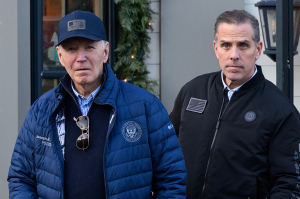It's Time to Drill
Oil and the Poor
According to a recent Reuters report, a leading Senate Democrat "would consider supporting opening up new areas for offshore oil and gas drilling."
Senator Richard Durbin (D-Ill.), the majority whip, said that, subject to certain conditions, he—and possibly even Majority Leader Reid—are "open to drilling and responsible production." Until now, they have been adamantly opposed.
Reuters is correct when it implies that this grudging, newfound openness is related to "the spike in oil prices to record highs above $145 per barrel." It is a shame it took those kinds of prices—and the pain they cause—to spur long-needed action.
I have got to admit: As each day goes by, I am growing angrier over the debate about oil prices. Elites pontificate that if we simply let the prices rise, the country will be forced to develop alternate energy sources. People will drive less and use less fuel, and that would benefit the environment.
I use the word pontificate deliberately, because the tone is often condescending—as if they were telling a young child to "eat your vegetables." Hand-in-hand with the pontification is a stubborn resistance to looking for new sources of domestic oil production, either onshore or offshore, or in Alaska.
The implicit message is that allowing such drilling would interfere with the lesson that the American people need to learn.
Ok, we have got to conserve more; I agree. And we have got to find alternatives to foreign oil. But, in the meantime, the "lessons" the elites are seeking to teach us are killing the world's economy. And nobody feels the pain more than working-class Americans and the poor.
Historian Victor Davis Hanson recently wrote about talking with some people at a rural gas station in central California. These people could not afford a "new fuel-efficient" car, and "they were now spending a day or two of their wages just to fuel their cars for their long rural commutes."
As Hanson put it, the "truly ethical and environmental solution would require embracing positions long considered anathema" to our elites. "Fairness to the poor and middle class" means lowering oil prices, not raising them as part of some social engineering scheme.
At this point, people object that increased drilling will do nothing to lower gas prices. They insist it will be decades, if not longer, before the increased exploration pays off in new supplies.
Well, they are wrong: Before the moratorium on offshore drilling, oil companies had already discovered billions of barrels of reserves on the California coast. A friend of mine in the industry says they could be online and pumping within two years.
What is more, announcing that we would allow more domestic production would quickly lower prices at the pump—because traders would be convinced that the supply is going up, not down.
Nobody would benefit more from offshore drilling than working Americans—those being hurt the most by the status quo.
It is galling to me to watch people who, doubtless, live in large homes, fly in private planes, and are not affected by the price of gas, build their idea of utopia on the backs of the poor. Christians must care about the environment, of course—but people, especially the poor, come first.
So, if our leaders are, indeed, ready to change this immoral status quo, I say, "What took you so long? And let's get going now."




























